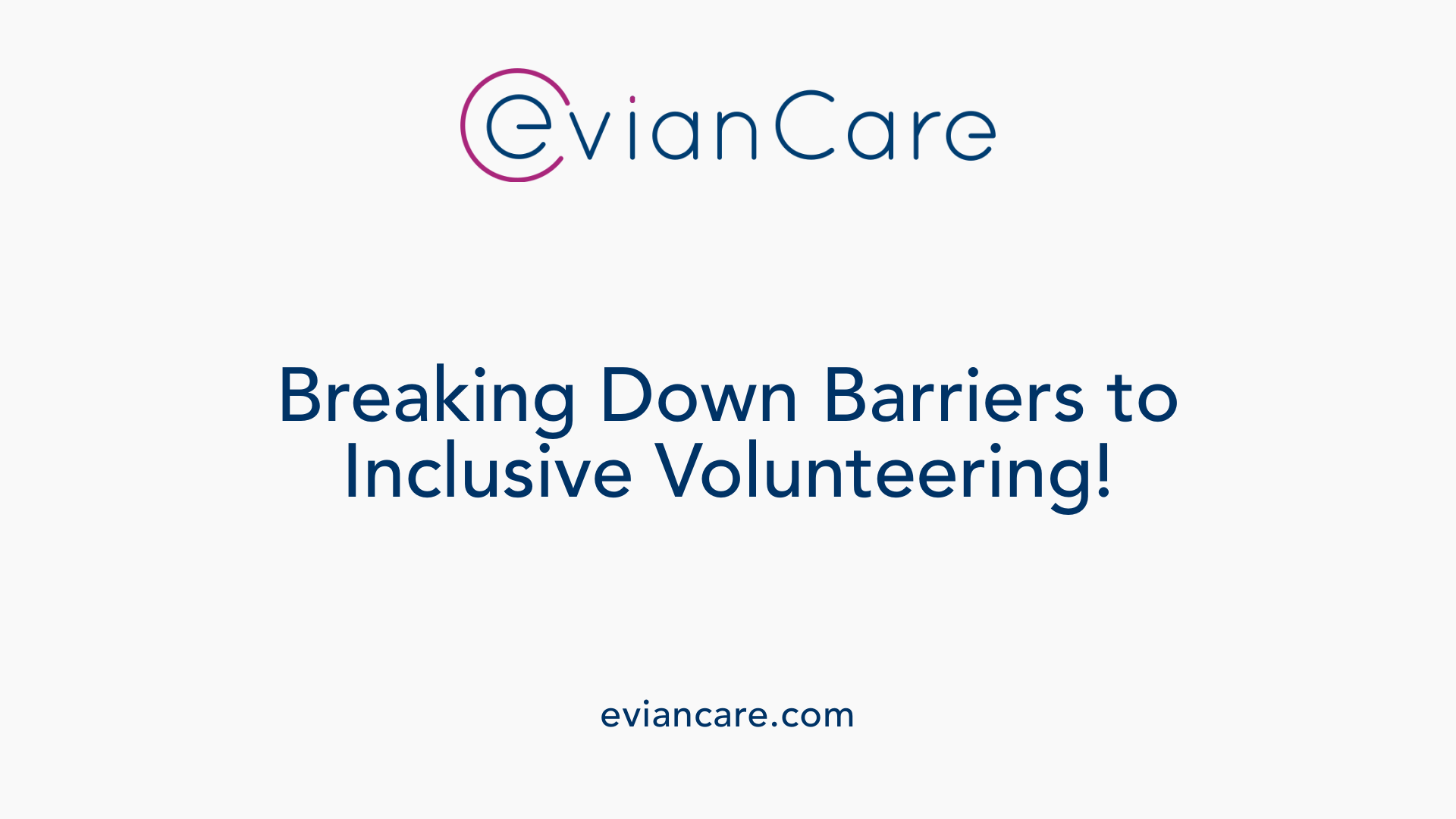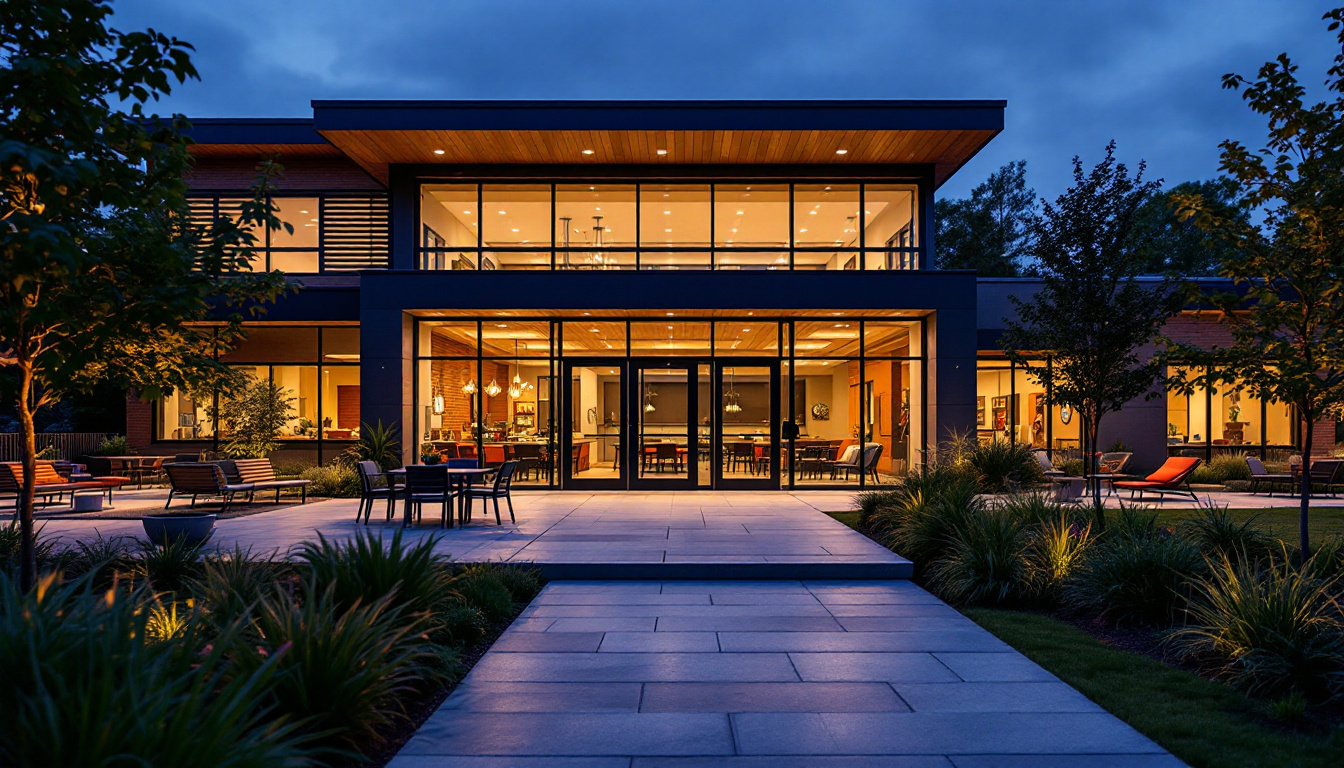
Unlocking Volunteer Pathways
Volunteering is a cornerstone of community life, offering an avenue for individuals with developmental disabilities to actively participate and enrich their communities. Accessing volunteer opportunities through organizations like the Division of Developmental Disabilities (DDD) opens doors to engagement, fulfillment, and social contribution. This guide explores how individuals with disabilities can find and participate in volunteer opportunities, the supports available, and insights into making volunteering inclusive and accessible.
Discovering Meaningful Volunteer Opportunities

How can individuals find meaningful volunteer opportunities?
Individuals seeking meaningful volunteer roles can tap into a variety of platforms designed to match their interests and skills with appropriate organizations.
Some of the most effective platforms include:
- VolunteerMatch: Connects users with local nonprofits needing help in various areas.
- JustServe: Offers a user-friendly interface to find volunteer opportunities by location and interest.
- The Point & DoSomething.org: Engage volunteers specifically in environmental conservation or educational initiatives.
For older adults, Encore.org tailors projects suitable for those aged 50 and above, while international volunteering options can be explored through organizations like International Volunteer HQ and Global Volunteers.
How can opportunities be tailored to skills and interests?
To ensure a fulfilling experience, individuals can focus on:
- Assessing personal skills and interests before initiating their search.
- Utilizing platforms like Idealist and Catchafire.org, which allow volunteers to match their professional skills with nonprofit needs.
- Creating and maintaining an updated profile to enhance visibility on these platforms.
What resources help with finding volunteer opportunities?
Several resources can assist individuals in navigating the volunteer landscape, especially for those with disabilities:
- My Volunteer Vision: Helps articulate personal interests and preferences in volunteering.
- Tips to Overcome Common Challenges: Directed at disability professionals to promote inclusive practices.
- Planning for Inclusion: A guide to help volunteer coordinators create welcoming environments for participants with intellectual disabilities.
Involving volunteers with disabilities not only enriches their community contributions but also enhances their personal development and social skills.
Overcoming Barriers to Volunteer Participation

Common obstacles faced by individuals with disabilities in volunteering
Individuals with intellectual and developmental disabilities (I/DD) encounter several challenges that limit their access to volunteer opportunities. Misconceptions about their capabilities often lead to diminished expectations and reluctance from organizations to involve them in active roles. Additionally, a lack of accessible options, insufficient training for staff, and societal attitudes that marginalize people with disabilities can create significant barriers.
Strategies to tackle misconceptions and accessibility issues
To ensure that volunteering is accessible, organizations can implement several strategies. First, conducting disability-inclusive training for staff and volunteers helps enhance understanding and sensitivity to the specific challenges faced by disabled volunteers. Recruitment processes should incorporate diverse communication methods and provide information in formats that everyone can access.
Offering flexible volunteering options allows individuals to express their needs and participate on their own terms. It’s crucial to understand and respect the interests and skills of disabled volunteers, matching them with opportunities that reflect their aspirations and strengths.
Importance of creating inclusive volunteer spaces
Creating inclusive volunteer spaces fosters a culture of equity and respect. Organizations should promote an environment where all volunteers feel valued, which significantly boosts their satisfaction and overall well-being. The impact of this inclusivity can resonate throughout the community, paving the way for enhanced participation among individuals with disabilities.
| Barrier | Solution | Impact |
|---|---|---|
| Misconceptions about capabilities | Disability-inclusive training | Increased volunteer participation |
| Lack of accessible opportunities | Flexible volunteering options | Enhanced engagement and satisfaction |
| Societal attitudes limiting roles | Promoting equity and respect | Stronger community involvement |
By addressing these obstacles effectively, organizations can create a thriving volunteer environment that encourages meaningful contributions from all community members.
Navigating Eligibility and Legal Aspects

Are individuals with disabilities eligible for volunteer roles, and is their participation protected under the ADA?
Individuals with disabilities absolutely can engage in volunteer roles, offering them invaluable experiences and opportunities for networking with potential employers. This is crucial for enhancing their community involvement and skill development. However, when it comes to protections under the Americans with Disabilities Act (ADA), it’s a bit nuanced.
Under Title I of the ADA, the protections typically apply to employees, meaning that volunteer participation does not receive the same legal warranty. That said, exceptions exist. For instance, if a volunteer receives significant monetary compensation or if their volunteer work opens pathways to employment, that could invoke protections.
Meanwhile, Title II of the ADA mandates that programs run by state and local governments must ensure accessibility. This can require necessary accommodations for volunteers with disabilities.
The implications of Title III regarding volunteer efforts remain somewhat unclear, as the Department of Justice has not issued definitive guidelines. Therefore, while individuals with disabilities can and should pursue volunteering, they must be aware of the varying legal protections that apply depending on their particular situation.
For a better understanding of these aspects, consider exploring resources on ADA protections for volunteering roles with disabilities.
Engage in Community Programs

Programs Offered Through DDD and Related Organizations
Organizations like the House of Champions Clubhouse and The Arc work diligently to support adults with developmental disabilities (IDD). They facilitate volunteer opportunities that allow individuals to engage positively with their communities. In partnership with the Department of Developmental Services, these organizations promote inclusion and empower volunteers, ensuring that everyone, regardless of ability, can contribute.
Specific Volunteer Roles and Project Examples
Volunteers can play various roles in these programs. For instance, at the House of Champions, tasks may include:
- Dinner Preparation: Helping prepare meals for community gatherings.
- Arts and Crafts: Leading or assisting in creative activities.
- Group Activities: Facilitating engagement through games and teamwork exercises.
Additionally, Eagle Scout projects focused on creating recreational spaces showcase how volunteers can make a tangible impact, enhancing facilities for individuals with disabilities.
Process of Getting Involved in Community Service
Getting involved is an accessible and rewarding journey. The typical steps include:
- Sign Up: Express your interest in volunteering.
- Interview: Meet with a volunteer coordinator to discuss your motivations and skills.
- Background Check: Complete a standard procedure for safety.
- Orientation: Attend a session to understand your role and responsibilities.
- Start Volunteering: Engage in your new role!
For more personalized information, contact Julie at 949-837-7280, extension 204.
Community Impact and Personal Growth

Contribution of volunteering to personal and societal development
Volunteering plays a crucial role in enhancing both personal growth and community engagement. For individuals with developmental disabilities, volunteering not only fosters a sense of purpose but also promotes inclusivity. Initiatives like the House of Champions Clubhouse program exemplify this, enabling volunteers to assist in meaningful activities such as dinner preparation and arts and crafts.
This involvement cultivates skills and relationships, proving that everyone, regardless of ability, has valuable contributions to offer their community.
Combining volunteer work with other activities
Adults with disabilities can balance volunteering with other pursuits, such as part-time job placements. Organizations like RCOC help individuals integrate volunteer work into their adult day program services. This approach allows them to enhance skills while building connections within the community.
Examples of volunteer projects for individuals with disabilities
Several volunteer opportunities are available. For instance, Eagle Scout projects focus on improving recreational spaces for individuals with disabilities. Other examples include:
| Volunteer Activity | Description | Benefits to Community |
|---|---|---|
| Dinner preparation at House of Champions | Assisting with meals for over 50 adults | Promotes social interaction and nutritional support |
| Arts and crafts sessions | Engaging participants in creative activities | Enhances self-expression and community bonding |
| Community service days | Participation in events like Martin Luther King, Jr. Day of Service | Encourages civic engagement and social awareness |
Can someone on disability do volunteer work?
Yes, individuals on disability can do volunteer work. However, caution is advised, as involvement in certain activities could be classified as Substantial Gainful Activity (SGA) by the Social Security Administration (SSA).
In 2025, the SGA income limits are $1,620 per month for nonblind individuals and $2,700 for blind individuals. However, some volunteering, like those under the Domestic Volunteer Service Act, is exempt from SGA counts. Individuals are also encouraged to look into the SSA's Ticket-to-Work Program, which supports the transition to financial independence without immediate loss of benefits.
Volunteering: A Pathway to Inclusivity
By fostering environments where individuals with developmental disabilities can thrive, society unlocks the full potential of all its members. With the right resources, support systems, and opportunities, volunteering can serve as a bridge to broader community involvement, personal growth, and societal transformation. Whether through structured programs offered by organizations like DDD or individual initiatives, paving pathways for inclusive volunteer practices enriches us all.
References
- Volunteer - Vocational Visions
- Inclusive Volunteering | The Arc
- Volunteer - Disability Community Aid - Dayle McIntosh Center
- Creating Inclusive Volunteer Opportunities for Individuals with ...
- Adult Day Programs - Regional Center of Orange County
- Volunteers and the Americans with Disabilities Act (ADA)
- Applying for Jobs and Internships in Museums: A Practical Guide
- Want to give your time? 20 sites for finding volunteering opportunities












